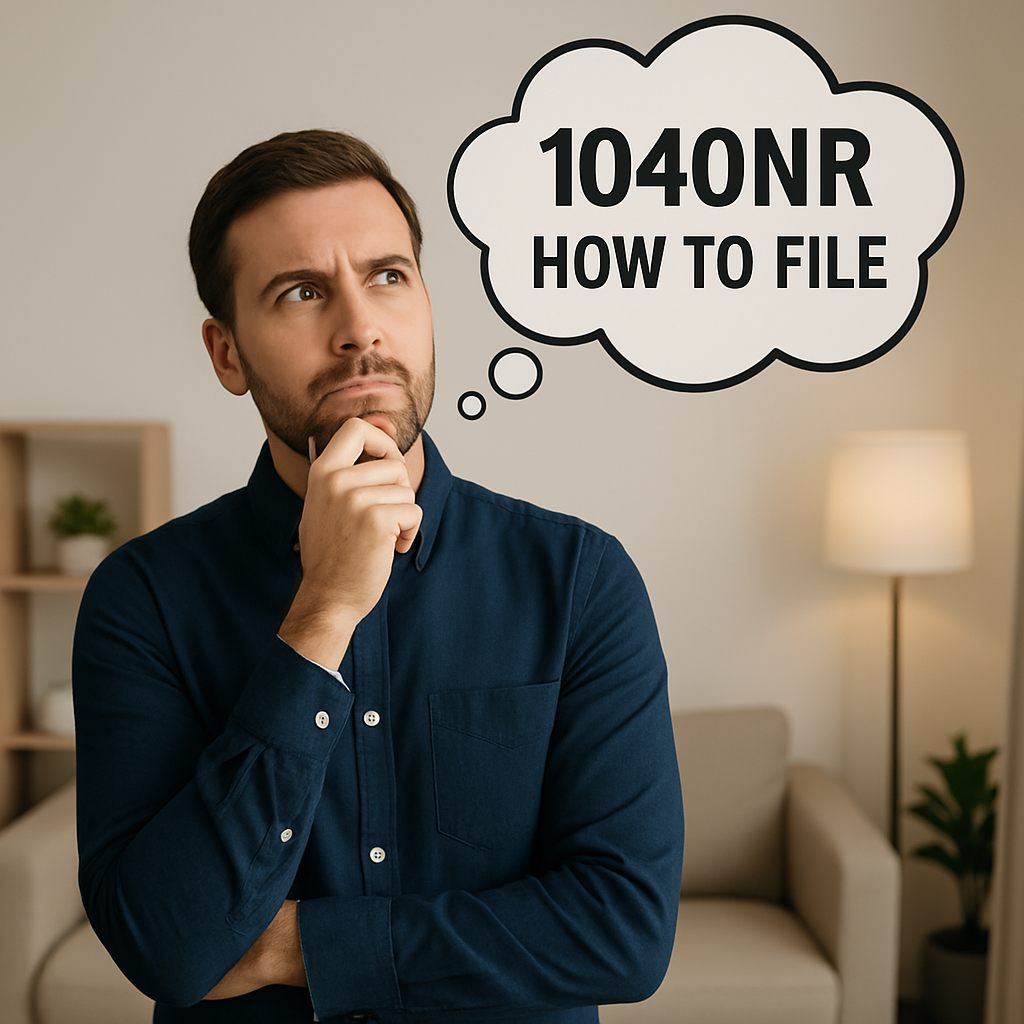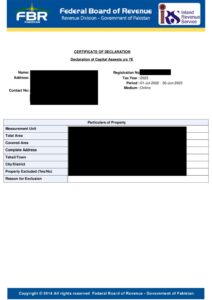Title: Income Tax Filing Obligations
Table of Contents
Introduction:
Navigating the intricate landscape of income taxation can be daunting, but Understanding Income Tax Filing Obligations: A Comprehensive Guide Sec [114] is essential for financial responsibility. In this comprehensive guide, we’ll break down Section 114(1) of the Income Tax Ordinance 2001 to shed light on who is obligated to file a return of income in Pakistan.
Section 114(1)(a): Filing Requirements for Companies
According to the ordinance, every company operating within Pakistan, regardless of its size or industry, must file a return of income.
Section 114(1)(ab): Individuals’ Taxable Income Threshold
Individual taxpayers, excluding companies, must file a return if their taxable income for the year exceeds Rs. 600,000 and is not eligible for tax exemptions under the Income Tax Ordinance 2001.
Section 114(1)(ac): Non-Profit Organizations (NPOs)
Non-profit organizations, as defined in Section 2(36) of the ordinance, are also subject to the requirement of filing a return of income.
Section 114(1)(ae): Persons Subject to Final Taxation
Individuals whose income for the year is subject to final taxation under any provision of the Income Tax Ordinance 2001 are mandated to file a return.
Section 114(1)(b): Additional Filing Criteria
This section outlines specific criteria that trigger the obligation to file a return, including:
(i) Person who has been charged to tax in any of the two preceding tax years.
(ii) Person who claims loss carried forward under the Income Tax Ordinance 2001 for a tax year.
(iii) Person who owns:
(a) Immovable property with a land area of at least 500 square yards, or
(b) Owns any flat located in areas falling within municipal limits existing
immediately before commencement of Local Government laws in provinces; or
areas in Cantonment; or Islamabad Capital Territory (ICT).
(iv) Person who owns immovable property with a land area of at least 500 square yards located in a rating area.
(v) Person who owns a flat having a covered area of at least 2000 square feet located in a rating area.
(vi) Person who owns a motor vehicle having an engine capacity above 1000 CC.
(vii) Person who has obtained National Tax Number (NTN).
(viii) Person who is the holder of a commercial or industrial connection of electricity where the amount of the annual bill exceeds Rs. 500,000/-
(ix) Person registered with any chamber of commerce and industry or any trade or business association or any market committee or any professional body including Pakistan Engineering Council, Pakistan Medical and Dental Council, Pakistan Bar Council, or any Provincial Bar Council, Institute of Chartered Accountants of Pakistan, or Institute of Cost and Management Accountants of Pakistan.
(x) Resident person being an individual required to file foreign income and assets statement under section (116A).
Section 114(1)(c): Authority for Additional Notifications
Persons or classes of persons not explicitly mentioned in the ordinance may be notified by the Board with the approval of the Minister in-charge.
Section 114(1A): Individual Income from Business
Additionally, every individual whose income from business exceeds Rs. 300,000 but does not exceed Rs. 400,000 in a tax year is required to furnish a return of income.
Conclusion:
Understanding your income tax filing obligations is crucial for compliance and financial planning. By adhering to the guidelines outlined in Section 114(1) of the Income Tax Ordinance 2001, individuals, companies, and non-profit organizations can fulfill their tax responsibilities effectively, avoiding penalties and legal ramifications.
![Understanding Income Tax Filing Obligations: A Comprehensive Guide Sec [114]](http://taxpills.com/wp-content/uploads/2024/01/animated_man_with_short_beard_with_brown_eyes_wi.jpg)
Table Format:
| Section | Description |
|---|---|
| 114(1)(a) | Filing Requirements for Companies: Every company operating within Pakistan, regardless of its size or industry, must file a return of income. |
| 114(1)(ab) | Individuals’ Taxable Income Threshold: Individual taxpayers, excluding companies, must file a return if their taxable income for the year exceeds Rs. 600,000. |
| 114(1)(ac) | Non-Profit Organizations (NPOs): Non-profit organizations, as defined in Section 2(36) of the ordinance, are also subject to the requirement of filing a return. |
| 114(1)(ae) | Persons Subject to Final Taxation: Individuals whose income for the year is subject to final taxation under any provision of the Income Tax Ordinance 2001. |
| 114(1)(b) | Additional Filing Criteria: Specific criteria triggering the obligation to file a return include: |
| – Person charged to tax in any of the two preceding tax years. | |
| – Person claiming loss carried forward under the Income Tax Ordinance 2001 for a tax year. | |
| – Person owning immovable property with a land area of at least 500 square yards, or any qualifying flat. | |
| – Person owning a motor vehicle with an engine capacity above 1000 CC. | |
| – Person having obtained National Tax Number (NTN). | |
| – Person holding a commercial or industrial connection of electricity with an annual bill exceeding Rs. 500,000. | |
| – Person registered with specified professional bodies or associations. | |
| – Resident individual required to file a foreign income and assets statement under section (116A). | |
| 114(1)(c) | Authority for Additional Notifications: Persons or classes of persons not explicitly mentioned in the ordinance may be notified by the Board with ministerial approval. |
| 114(1A) | Individual Income from Business: Individuals whose income from business exceeds Rs. 300,000 but does not exceed Rs. 400,000 in a tax year must furnish a return. |
This format presents the information in a clear and structured manner, making it easier for readers to grasp the key points.
Practice Examples
- Scenario for Section 114(1)(ab):
- Example: Sarah, a salaried individual in Pakistan, earned a total income of Rs. 750,000 during the tax year after deducting her allowable expenses. She does not qualify for any tax exemptions. Is Sarah required to file an income tax return?
- Answer: Yes, Sarah is required to file an income tax return because her taxable income exceeds the threshold of Rs. 600,000 as specified in Section 114(1)(ab).
- Scenario for Section 114(1)(b)(iii):
- Example: Ahmed owns a flat in Lahore, which has a covered area of 2200 square feet. Does Ahmed need to file an income tax return for the current tax year based on the property ownership criteria outlined in Section 114(1)(b)(iii)?
- Answer: Yes, Ahmed needs to file an income tax return because he owns a flat with a covered area exceeding 2000 square feet, as specified in Section 114(1)(b)(iii).
- Scenario for Section 114(1)(ae):
- Example: Ali received a dividend income, which is subject to final taxation under the Income Tax Ordinance 2001. Does Ali need to file an income tax return for the tax year due to this final taxation requirement?
- Answer: Yes, Ali needs to file an income tax return because his income is subject to final taxation under the provisions of Section 114(1)(ae).
- Scenario for Section 114(1A):
- Example: Fatima runs a small business and earned a net income of Rs. 350,000 during the tax year. Does Fatima need to file an income tax return based on the business income threshold specified in Section 114(1A)?
- Answer: No, Fatima is not required to file an income tax return because her business income falls below the threshold of Rs. 400,000 as specified in Section 114(1A).
- Scenario for Section 114(1)(c):
- Example: The Federal Board of Revenue (FBR) notifies individuals engaged in freelance consulting services as an additional class of persons required to file income tax returns. Does this notification align with the authority granted under Section 114(1)(c)?
- Answer: Yes, the notification aligns with the authority granted under Section 114(1)(c), which allows the FBR to notify additional persons or classes of persons for income tax filing obligations with the approval of the Minister in-charge.
- Scenario for Section 114(1)(b)(vi):
- Example: Khan owns a motor vehicle with an engine capacity of 1200 CC. Is Khan obligated to file an income tax return based on the vehicle ownership criteria specified in Section 114(1)(b)(vi)?
- Answer: Yes, Khan is obligated to file an income tax return because he owns a motor vehicle with an engine capacity exceeding 1000 CC, as specified in Section 114(1)(b)(vi).
- Scenario for Section 114(1)(ac):
- Example: XYZ Foundation is a non-profit organization registered in Pakistan. Does XYZ Foundation need to file an income tax return as per the filing requirements outlined in Section 114(1)(ac) of the Income Tax Ordinance 2001?
- Answer: Yes, XYZ Foundation needs to file an income tax return as per the filing requirements outlined in Section 114(1)(ac) because it is a non-profit organization operating within Pakistan.
- Scenario for Section 114(1)(b)(ix):
- Example: Aisha, a practicing lawyer, is a member of the Provincial Bar Council. Does Aisha need to file an income tax return based on her membership in a professional body, as mentioned in Section 114(1)(b)(ix)?
- Answer: Yes, Aisha needs to file an income tax return because she is a member of a professional body, the Provincial Bar Council, as specified in Section 114(1)(b)(ix).
- Scenario for Section 114(1)(b)(i):
- Example: Bilal was charged to tax in the previous two tax years. Does Bilal need to file an income tax return for the current tax year?
- Answer: Yes, Bilal needs to file an income tax return for the current tax year as he was charged to tax in any of the two preceding tax years, as per Section 114(1)(b)(i).
- Scenario for Section 114(1)(b)(v):
- Example: Maria owns a flat with a covered area of 1800 square feet located in a rating area. Does Maria need to file an income tax return based on the property ownership criteria specified in Section 114(1)(b)(v)?
- Answer: No, Maria does not need to file an income tax return as her flat’s covered area is less than the 2000 square feet threshold specified in Section 114(1)(b)(v).
- Scenario for Section 114(1)(b)(viii):
- Example: Jamal is the holder of a commercial connection of electricity where the annual bill exceeds Rs. 400,000. Does Jamal need to file an income tax return based on the electricity connection criteria specified in Section 114(1)(b)(viii)?
- Answer: No, Jamal does not need to file an income tax return as his annual electricity bill does not exceed the Rs. 500,000 threshold specified in Section 114(1)(b)(viii).
- Scenario for Section 114(1)(b)(x):
- Example: Sara is a resident individual required to file a foreign income and assets statement under section 116A. Does Sara need to file an income tax return based on the foreign income and assets statement requirement specified in Section 114(1)(b)(x)?
- Answer: Yes, Sara needs to file an income tax return as a resident individual required to file a foreign income and assets statement under section 116A, as per Section 114(1)(b)(x).
- Scenario for Section 114(1)(b)(ii):
- Example: Ali claims a loss carried forward under the Income Tax Ordinance 2001 for the current tax year. Does Ali need to file an income tax return based on claiming the loss carried forward?
- Answer: Yes, Ali needs to file an income tax return as he claims a loss carried forward under the Income Tax Ordinance 2001 for the current tax year, as per Section 114(1)(b)(ii).
- Scenario for Section 114(1)(b)(iv):
- Example: Ahmed owns immovable property with a land area of 700 square yards located in a rating area. Does Ahmed need to file an income tax return based on the property ownership criteria specified in Section 114(1)(b)(iv)?
- Answer: Yes, Ahmed needs to file an income tax return as he owns immovable property with a land area exceeding 500 square yards, as specified in Section 114(1)(b)(iv).

Frequently Asked Questions (FAQs) and Their Answers
- What is Section 114(1) of the Income Tax Ordinance 2001 and how does it relate to income tax filing obligations in Pakistan?
- Answer: Section 114(1) of the Income Tax Ordinance 2001 outlines the requirements for filing income tax returns in Pakistan. It specifies the entities and individuals obligated to file returns, including companies, individuals with taxable income exceeding Rs. 600,000, non-profit organizations, and those subject to final taxation.
- What are the specific criteria mentioned in Section 114(1)(b) that trigger the obligation to file an income tax return?
- Answer: Section 114(1)(b) of the Income Tax Ordinance 2001 lists various criteria, including ownership of property or vehicles, possession of National Tax Numbers (NTNs), commercial or industrial electricity connections exceeding Rs. 500,000 in annual bills, and membership in professional bodies or trade associations.
- Can you explain the significance of understanding Section 114(1)(ae) regarding persons subject to final taxation in Pakistan?
- Answer: Section 114(1)(ae) mandates individuals whose income is subject to final taxation under any provision of the Income Tax Ordinance 2001 to file a return. This ensures compliance with tax regulations and facilitates accurate reporting of taxable income.
- How does Section 114(1A) of the Income Tax Ordinance 2001 impact individual taxpayers with business income in Pakistan?
- Answer: Section 114(1A) requires individuals whose income from business exceeds Rs. 300,000 but does not exceed Rs. 400,000 in a tax year to furnish a return of income. This provision targets small business owners and ensures their tax compliance.
- Is there flexibility for the Federal Board of Revenue (FBR) to notify additional persons or classes of persons for income tax filing obligations beyond those mentioned in the ordinance?
- Answer: Yes, Section 114(1)(c) grants the FBR the authority to notify additional persons or classes of persons for income tax filing obligations with the approval of the Minister in-charge. This allows for adaptation to evolving tax scenarios and ensures comprehensive tax coverage.
- How can individuals determine if they meet the taxable income threshold for filing an income tax return in Pakistan?
- Answer: Individuals can calculate their taxable income by subtracting allowable deductions from their total income. If the resulting amount exceeds Rs. 600,000 and is not eligible for tax exemptions, they are required to file an income tax return as per Section 114(1)(ab) of the Income Tax Ordinance 2001.
- What role do non-profit organizations (NPOs) play in income tax filing obligations in Pakistan according to Section 114(1)(ac)?
- Answer: Non-profit organizations, as defined in Section 2(36) of the Income Tax Ordinance 2001, are obligated to file a return of income regardless of their size or activities. This ensures transparency and accountability in the financial operations of NPOs.
- How do the criteria outlined in Section 114(1)(b) of the Income Tax Ordinance 2001 impact property and vehicle owners in Pakistan?
- Answer: Section 114(1)(b) imposes filing obligations on individuals who own immovable property or flats above certain specified sizes, motor vehicles with engine capacities exceeding 1000 CC, and those with commercial or industrial electricity connections exceeding Rs. 500,000 in annual bills. Compliance with these criteria is essential to fulfill tax responsibilities.
- What are the consequences of not complying with the income tax filing obligations outlined in Section 114(1) of the Income Tax Ordinance 2001?
- Answer: Failure to comply with income tax filing obligations may result in penalties, fines, and legal consequences imposed by the tax authorities in Pakistan. Additionally, non-compliance can lead to difficulties in obtaining certain financial services and legal documentation.
- Are there any provisions in the Income Tax Ordinance 2001 that provide relief or exemptions for certain taxpayers regarding income tax filing obligations?
- Answer: Yes, the Income Tax Ordinance 2001 includes provisions for various exemptions and deductions aimed at reducing the tax burden for certain taxpayers. These exemptions may include allowances for education, medical expenses, charitable donations, and investments in government-approved schemes.

How Can I Help You?
- Return Filing Services:
- Whether you need assistance with individual or business returns, I’ve got you covered. Your returns will be prepared professionally and in accordance with Income Tax rules.
- Customized Solutions:
- Have specific requirements or unique situations? Let’s discuss your needs, and I’ll tailor my services to meet your individual circumstances.
- YouTube Description:
- Find my number in the YouTube description and drop me a message. I’ll get back to you as soon as I’m available.
- Website:
- Visit my website and give me a call or leave a message. I’ll respond promptly to address your queries.
- WhatsApp:
- Prefer WhatsApp? Feel free to send me a message, and I’ll assist you as soon as I’m available.
Professional and Rule-Compliant Services: Rest assured that the services provided will be professional and adhere to Income Tax rules. Your peace of mind is my priority, and I’m committed to offering you the best solutions.
Feel free to reach out whenever you have questions or require assistance with your income tax matters. Looking forward to helping you navigate the world of taxation seamlessly! JazakAllah!

![Understanding Income Tax Filing Obligations: A Comprehensive Guide Sec [114]](https://taxpills.com/wp-content/uploads/2024/02/LimeWire-AI-Studio-Asset-15-1.jpg)





